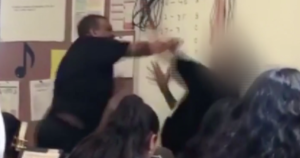The Crippling Problem of Student Loans
October 30, 2019
College and higher education should be an absolute right for citizens of the United States. It is unfair to lower social and economic classes to have them pay an exorbitant amount for higher learning.
Plus, since more people would be able to attain employer desired credentials, more people would be able to take the good-paying jobs that often go unfilled. That could result in billions of additional dollars circulating throughout the economy since people tend to spend more money when they have higher incomes and little or no debt. It could also mean that the government would take in a lot of extra tax revenue, which could go a long way toward paying for free public colleges, according to an article from the Washington Post.
But the issue of why college should be free is not just an economic one. It is also a moral and philosophical one. Do we want every American, regardless of social standing, to have an equal opportunity to reach his or her potential? That is what this country is supposed to be about, yet social mobility has been eroding for the poor and middle class. Without easy and affordable access to quality higher education for everyone, the collective intelligence and goodwill of the nation could also erode, according to an article from NPR.
Ultimately, many people believe that a college-level education should be an absolute right, so long as people have the ability to benefit from it. Put another way, free education is a concept that should not be limited to K-12 students.
Technically, free college is not really free. Someone does have to pay for it. In the case of public college, that means taxpayers. But some economists believe that every American who wants to could go to college for free if the federal and state governments made a few reasonable changes. They do not see the concept as a fantasy. They see it as a very realistic option, according to an article from CNN.
Proponents of free college believe that this opportunity would benefit the entire nation, not just the individual students who take advantage of it. They see it as both a private and public benefit. After all, more and more of today’s jobs are knowledge-based or require advanced technical skills. So a better-educated workforce would help fill many of the skills gaps that prevent America’s economy from growing faster.



